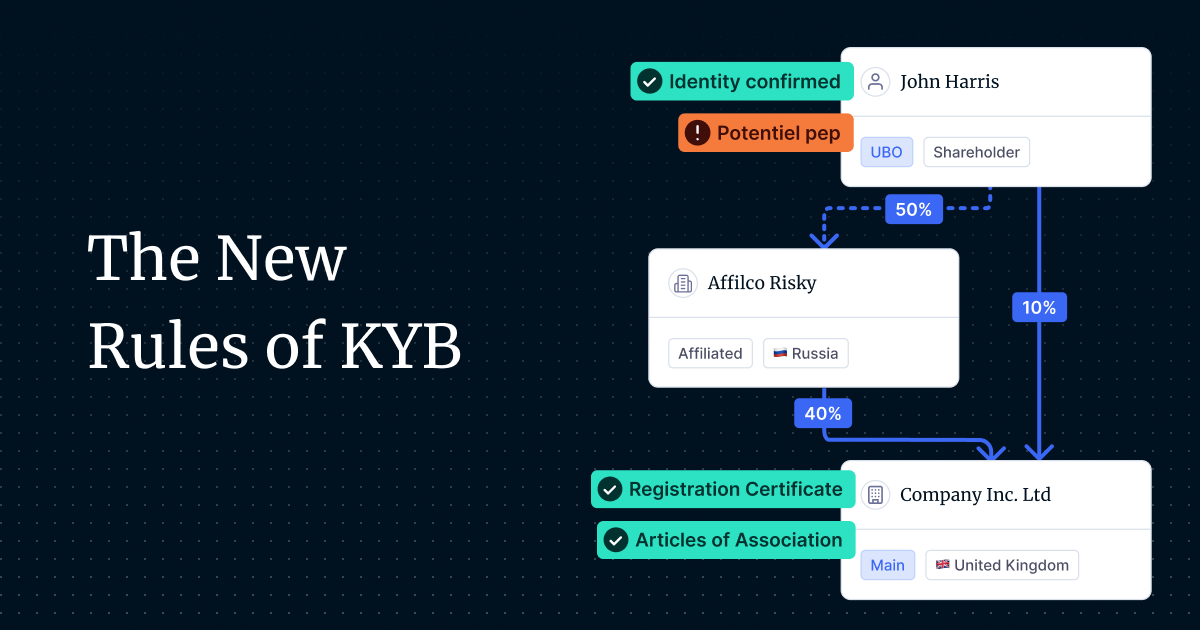EBA and ESMA publish new guidelines under MiCA
The European Banking Authority (EBA) and the European Securities and Markets Authority (ESMA) published joint guidelines on the suitability of members of the management body and on the assessment of shareholders and members with qualifying holdings for issuers of asset reference tokens (ARTs) and crypto-asset service providers (CASPs), under the MiCA regulation. Both sets of guidelines are part of the EBA and ESMA‘s ongoing efforts to foster a transparent, secure, and well-regulated crypto-assets market, and complement the recently published governance package.
Why is it relevant?
This is yet another step taken by European authorities to regulate the crypto and digital asset industry aiming to increase the trust in the financial system. Businesses need to inform the authorities of any changes to the management body. This will then undergo an appropriate assessment.
Read more about the guidelines
N26 fined for AML failures (again)
The German regulator, BaFin, fined N26 €9.2 million for anti-money laundering failures. BaFin concluded that in 2022 N26 systematically submitted suspected money laundering reports late. According to N26’s statement, since 2022 the company has invested in both personnel and technical infrastructure to ensure the highest industry standards aiming to combat financial fraud.
Why is it relevant?
This is yet another fine imposed at the bank due to the AML failures. Back in 2021, N26 was fined over lax money laundering controls.
More about N26 non-compliance struggles
Artificial Intelligence (AI) Act: the first worldwide rules on AI
The Council approved the so-called Artificial Intelligence Act. The ground-breaking law aims to foster the development of safe and trustworthy artificial intelligence systems across the EU. The flagship legislation follows a ‘risk-based’ approach, meaning the higher the risk of causing harm to society, the stricter the rules. Exemptions apply for systems used exclusively for military and defense or for research purposes. The fines for violation of this law are set as a percentage of the offending company’s global annual turnover.
Why is it relevant?
It’s the first AI law in the world and it can set a global standard for AI regulation. This is the first step towards decreasing the risks associated with AI and ensuring the technology we create respects fundamental rights.
Learn more about AI regulation
First-Ever NFT Illicit Finance Risk Assessment
The US Department of the Treasury published a 2024 Non-fungible Token (NFT) Illicit Finance Risk Assessment. It explores how vulnerabilities associated with NFTs and NFT platforms may be exploited by fraudulent actors to launder proceeds from crimes or misused by terrorists.
Why is it relevant?
Inadequate cybersecurity protections as well as other factors can lead to fraud and theft related to NFTs. The assessment recognizes the NFT platforms lack appropriate controls to mitigate risks and combat money laundering.
More about the NFT Risk Assessment
A Round of Sanctions
- OFAC is sanctioning nearly 50 entities and individuals that constitute multiple branches of a sprawling “shadow banking” network used by Iran’s Ministry of Defense and Armed Forces Logistics (MODAFL) and Islamic Revolutionary Guard Corps (IRGC). Read more about OFAC's sanctions
- The sanctions package—the 14th since the outbreak of the war in 2022—bans the re-export of Russian gas shipments destined to third countries through EU ports, covering ship-to-ship and ship-to-shore transfers, as well as re-loading operations. Learn more about the 14th sanctions package
Italy set to increase crypto surveillance and introduce tougher sanctions
Italy plans to adopt stricter crypto surveillance measures due to the risks tied to digital assets. These measures would include extremely high fines ranging between €5,000 and €5 million for offenses such as market manipulation.
Why is it relevant?
With MiCA coming into effect later this year, EU countries are preparing to implement the regulation. Part of MiCA’s preparation process requires member states to decide which local regulator will assist in crypto supervision. While crypto should be regulated to protect inexperienced investors, it is being argued that the danger lies in over-regulation. The regulation is undoubtedly needed, yet heavy regulations may lead to crypto being heavily suppressed in the EU.
Monaco and Venezuela placed on global money-laundering watch list
FATF added Monaco and Venezuela to its “gray list” of nations requiring increased monitoring. It’s due to deficiencies that were identified in the AML systems of those two countries. Monaco is expected to improve its understanding of the risks related to money laundering and income-tax fraud committed abroad. Venezuela, on the other hand, must focus more on aspects such as its investigation and prosecution of money laundering and terrorist financing.
Why is it relevant?
Monaco seems to be vulnerable to financial threats due to very low tax rates which attract wealthy people. In result, Monaco is a go-to place for individuals interested in financial misconduct. Countries added to the “grey list” undergo a thorough monitoring to address shortcomings in AML/CTF procedures. It means that Monaco could be subjected to close regulatory scrutiny aiming to strengthen its regulatory frameworks.
The regulators ain’t resting. As more elaborate ways of money laundering emerge, the regulatory bodies work hard to prevent illicit actions.
We’re curious to see how this landscape is about to evolve. Stay tuned to get more updates soon or Book a demo to chat about your compliance needs.





.png)
